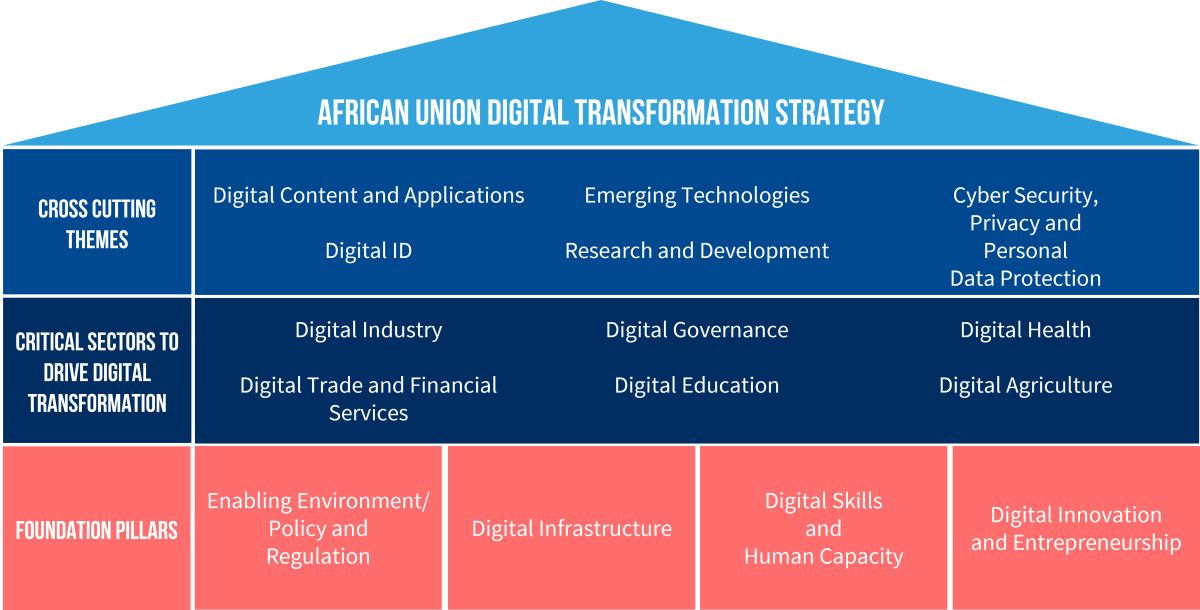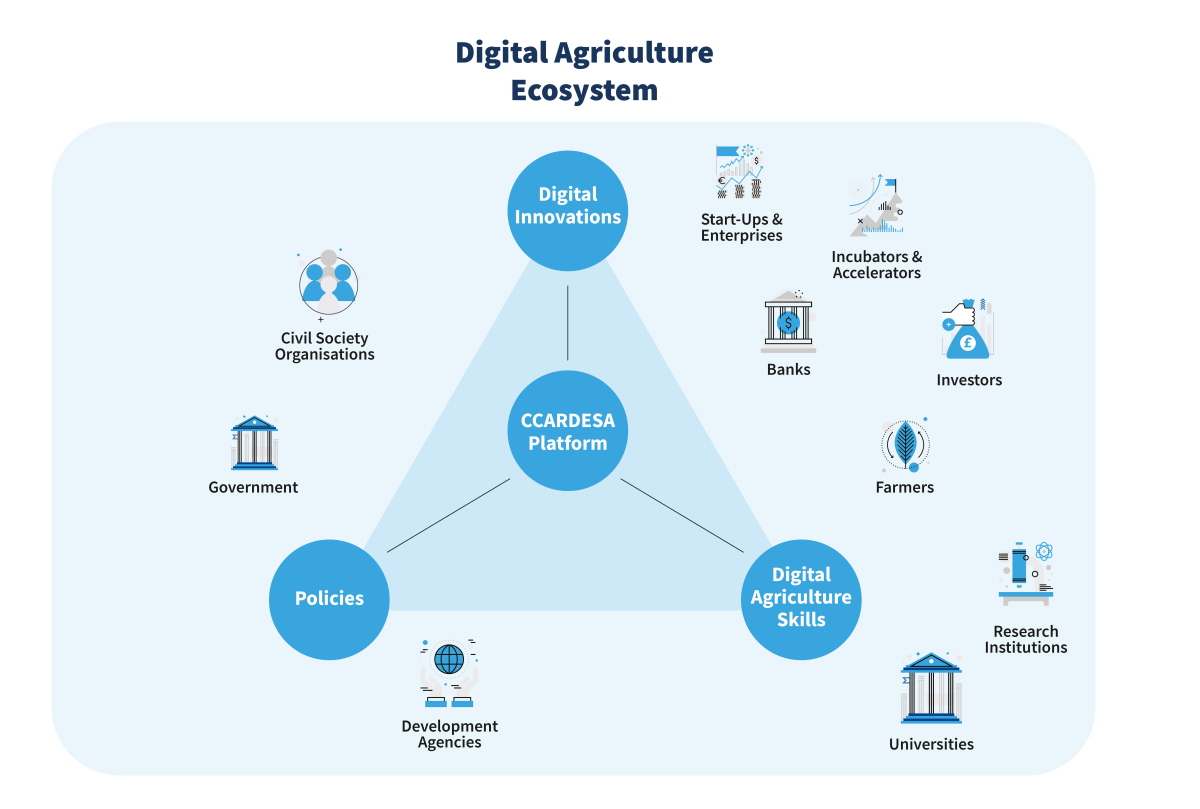Digitalization is a Gradual Process that Builds a Functioning, Dynamic, and Evolving Digital Ecosystem
Digitalization implies the use of digital technologies, innovations, and data to transform business models and practices across the value chain and address bottlenecks to achieve greater incomes for smallholder farmers, improve food and nutrition security, build climate resilience, and expand the inclusion of youth and women.
Digital transformation promises positive outcomes, such as efficiency, cost savings, and convenience, and increased trust in remote transactions.
It also brings barriers and risks that could negatively affect the adoption of digital solutions, such as cyber threats, fraud, exclusion of marginalized populations, and lack of emphasis on sustainability.
The process requires a broadly established and well-understood internal rationale, changes to organizational mindsets, ways of working and behaviors, and staff with the appropriate investment of time and resources.
It also requires a strategy to address the current pain points in a system, as well as its limitations, and needs to maintain a humility as to the human-based nature of consumers and operators in the system.
The African Union Digital Transformation Strategy for Africa Presents a Vision of an Integrated and Inclusive Digital Society and Economy for Africa.
It recognizes the digital economy as a key factor in stimulating economic growth and jobs, reducing inequality, and promoting sustainable growth.

Digital agendas previously focused on ICTs, providing hardware and universal access. The focus now is on enabling a digital economy with a more holistic view of digital and ICTs.
The digital economy considers sectors beyond the Information Technology (IT) industry, such as agriculture, and encourages a whole-of-government approach to implement policies and tackle risks.
The baseline identifies an assessment tool that provides an overview on the progress or level of development towards a digital economy to provide context to the findings and reflections of the study. [LINK TO BENCHMARK PAGE?]
An Ecosystem Approach
Achieving and sustaining any agricultural outcome often depends on the ability of multiple interconnected actors to work together.
Adopting an ecosystem approach recognizes the different actors, relationships and resources that have important roles in scaling innovations.
It also demands effectiveness in each part of the innovation system which is moderated by other parts of the system (e.g., innovators being able to access capital) and an understanding that a change in one part of the ecosystem leads to changes in other parts of the system (e.g., increases in internet connectivity will accelerate testing new technologies).

A digital ecosystem comprises stakeholders, systems, and an enabling environment that empowers communities to use digital technology to access services, engage with one another and drive economic advancement.
Key actors within an ecosystem include governments, civil society, private sector, universities, and innovators to work effectively together.
For innovations to be successful, they must be efficiently generated, developed, tested, reiterated, refined, and ultimately scaled for development impact within an enabling environment.
The ecosystem in which innovation exists requires coordination, collaborative action, and resources to ensure that it can operate at multiple levels - local, national, and regional - and inclusive of relevant sectors.






